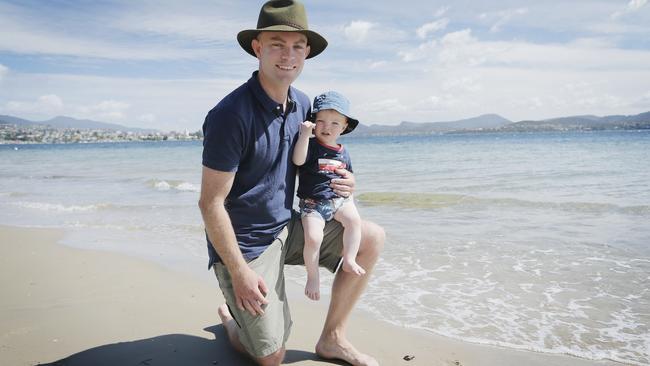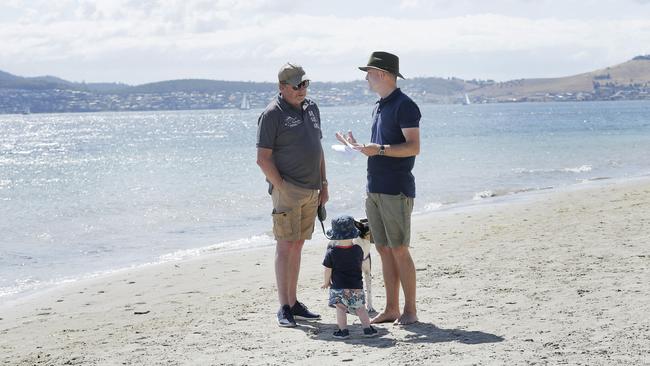DNA tests to help to solve water woes
As the search for the mystery source of Hobart’s beach pollution continues, water authorities are preparing to DNA fingerprint the faecal contamination.

Tasmania
Don't miss out on the headlines from Tasmania. Followed categories will be added to My News.
WATER quality experts say animals may be to blame for the elevated levels of pollution across Greater Hobart beaches in recent days, and DNA testing of the bacteria may solve the mystery.
TasWater is investigating whether warm-blooded animals — such as seabirds, native animals or pets — are behind the faecal contamination in the River Derwent.
Derwent Estuary Program chief executive Ursula Taylor said the source of the pollution remained unknown.
BEACHES NOW SAFE, BUT CONCERNS LINGER
“It could be from any warm-blooded animals, it could be seagulls,” Ms Taylor said.
“We are in constant contact with councils and TasWater, and we are helping with extra monitoring.”
TasWater chief executive officer Michael Brewster said the authority was looking into a range of factors that may have led to the high readings of enterococci bacteria.
“Part of this investigation will involve DNA fingerprinting of the enterococci bacteria in an attempt to determine a source,” he said.
TESTING REVEALS POOR WATER QUALITY
Enterococci are an indicator of the presence of faecal material in seawater.
“There are many potential sources including warm-blooded animals like seabirds, native animals and household pets. It can also be found in seaweed and beach vegetation,” he said.
“While the DNA tests may not give us a definitive answer, it is part of working through the process to identify what happened and what we can do about it.”

So far TasWater has identified no sewage blockages, pipe breaks or any abnormal discharge from sewage treatment facilities or pumping stations which may have contributed to the unusually high reading of enterococci which resulted in the closure of Blackmans Bay beach.
Kingborough Council’s testing of stormwater at Blackmans Bay beach has also come back with low levels of bacteria.
Seven of 18 sites failed water quality tests on Thursday and needed to be retested after high levels of faecal matter were recorded. Blackmans Bay water was found to be so bad it was immediately closed after initial testing.
MORE NEWS:
DOUBTS CAST OVER OIL RIG TESTING
SALMON INDUSTRY UNITED FOR THE FUTURE
Retests conducted across the seven sites, including beaches at Howrah, Bellerive, Sandy Bay and Blackmans Bay, showed all beaches recorded a pass mark.
The only two beaches that remain unsafe for swimming are the southern end of Blackmans Bay and Nutgrove Beach west.
Civil Liberties Australia president Richard Griggs, who is running as an independent candidate in the Upper House seat of Nelson, yesterday launched a petition calling for “urgent and united action” to locate and fix the problem of pollution in the Derwent.
“The extraordinarily high faecal contamination event this week warrants an urgent and unified response from the State Government,” he said.
A spokeswoman for the State Government said agencies would work together “to identify the cause of the earlier results”.


